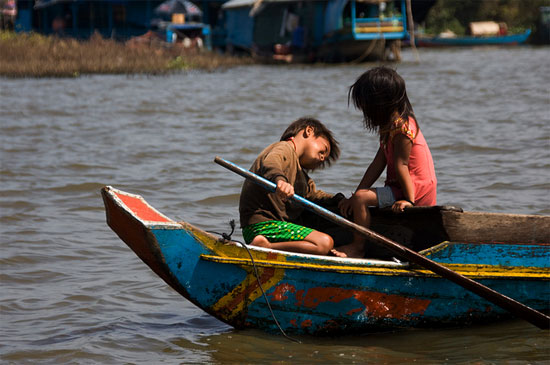-
Finding the Right Paddle: Navigating Climate Change Adaptation and Mitigation Strategies
›June 14, 2011 // By Christina DaggettAfter decades on the periphery, climate change has made its way onto the national security stage. Yet, while the worlds of science, policy, and defense are awakening to the threats of rising sea levels, stronger storms, and record temperatures, debate continues over the means and extent of adaptation and mitigation programs. In a world of possibilities, how to decide which paddle to use to navigate uncertain waters?
-
The Conflict Potential of Climate Adaptation and Mitigation
›August 4, 2010 // By Schuyler Null“Climate change and our energy future are issues that are really front and center in our policy debates and public debates,” said ECSP Director Geoff Dabelko in this collection of interviews from New Security Beat’s Backdraft series. “One specific set of questions within this larger debate is about how climate change connects to a broader security set of questions. In that context we have a lot of questions and a lot of concerns – [and] potentially some opportunities.”
-
Cleo Paskal: India Is Key to Climate Geopolitics
›July 27, 2010 // By Wilson Center Staff“Copenhagen was many things to many people,” said Chatham House’s Cleo Paskal, in a video interview with the Wilson Center’s Environmental Change and Security Program, but “what was very clear was that India, specifically, was playing quite a strong, clear role in deciding how alignments would be working.” We spoke to Paskal following her presentation at a recent Wilson Center event.
-
Chad Briggs: Dealing With Risk and Uncertainty in Climate-Security Issues
›July 21, 2010 // By Wilson Center StaffWe must do more than simply take our current understanding of climate-change risk and extrapolate it into the future, asserted Chad Briggs of the Berlin-based Adelphi Research in a video interview with the Wilson Center’s Environmental Change and Security Program.
-
Stacy VanDeveer: Will Using Less Oil Affect Petrostate Stability?
›July 12, 2010 // By Schuyler NullIf we were to actually use less fossil fuel, what would happen to today’s petrostates? “If the oil revenues dry up or even decline a little bit you might have a real serious crisis,” said Stacy VanDeveer of the University of New Hampshire, during an interview with ECSP. We spoke to VanDeveer following his presentation at the Wilson Center event, “Backdraft: The Conflict Potential of Climate Mitigation and Adaptation.”
-
Time to Give a Dam: Alternative Energy as Source of Cooperation or Conflict?
›July 8, 2010 // By Kayly OberMitigation can be a means to peace, not just conflict, said Stacy VanDeveer in the lead up to Backdraft: The Conflict Potential of Climate Mitigation and Adaptation at the Woodrow Wilson Center on June 10. VanDeveer believes that mitigation techniques, particularly alternative energy sources like hydroelectric dams, could stimulate cooperation rather than exacerbate threats.
-
Backdraft: The Conflict Potential of Climate Mitigation and Adaptation
›The European Union’s biofuel goal for 2020 “is a good example of setting a target…without really thinking through [the] secondary, third, or fourth order consequences,” said Alexander Carius, co-founder and managing director of Adelphi Research and Adelphi Consult. While the 2007-2008 global food crisis demonstrated that the growth of crops for fuels has “tremendous effects” in the developing world, analysis of these threats are underdeveloped and are not incorporated into climate change policies, he said. [Video Below]
Showing posts from category backdraft.






